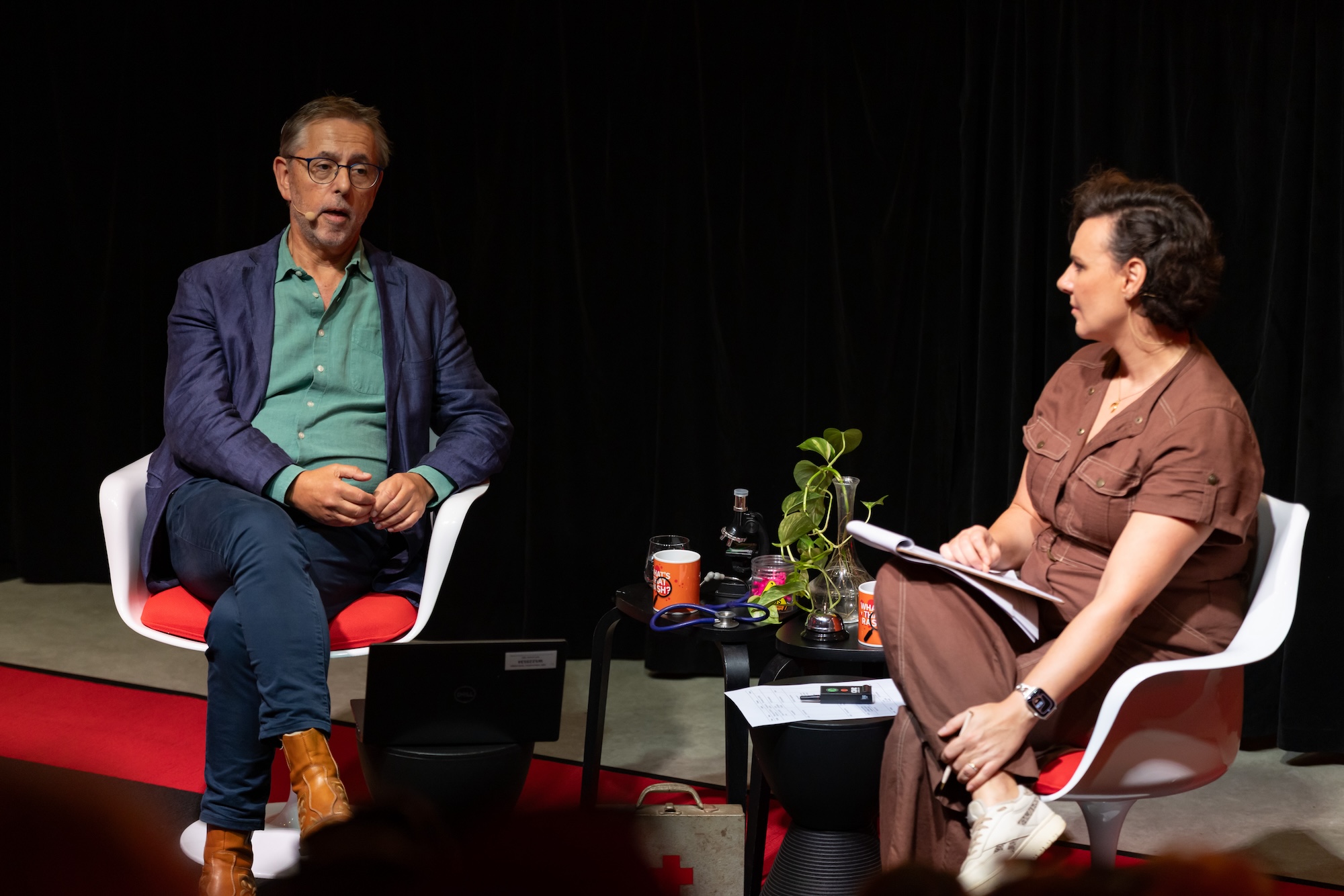ABC’s What’s that Rash: Why the carnivore diet is so risky

In this special episode of ABC Radio National’s What’s that Rash podcast, recorded live at World Science Festival Brisbane, hosts Tegan Taylor and Dr Norman Swan discuss the health risks associated with the carnivore diet.
So what is the carnivore diet?
Dr Swan and Tegan introduce the diet and explain the carnivore diet consists of almost no carbohydrates, very high fat – 60-70%, and the rest protein. They share images with the audience of what a typical day in the life of a person on a carnivore diet might eat: Breakfast – bacon and eggs (no toast), lunch – ground beef, dinner – steak with salt, and a snack could be a stick of butter (often consumed in a coffee).
Did cavemen and women really only eat meat?
The hosts dispel the popular theory that the carnivore diet is based on our ‘caveman’ origins. Dr Swan believes it’s too simplistic to say early humans only ate meat, and ‘caveman’ diets were very dependent on which region of the world they lived. Those living in far northern regions wouldn’t have access to many vegetables and likely ate diets with high consistencies of seal and blubber.
“(However), most of the world had carbohydrates, and the women would go out foraging for really quite complex carbohydrates…and they had tools to pound them and make them more digestible,” Dr Swan said.
“Every Palaeolithic diet pretty much had complex carbohydrate in it, just of different kinds depending on availability.”
The hosts discuss the data and research available that suggests humans have throughout evolution been omnivorous, and can adapt to eating lots of different foods and diets.
How does the carnivore diet get its feel good factor?
Tegan asks Dr Swan to explain why many people on the carnivore diet report feeling great and losing weight.
“This is a ketogenic diet, so you are producing ketone bodies, these alternate sources of energy which come from metabolising fat, rather than glucose and glycogen for your energy,” says Dr Swan.
He explains that people report feeling energised, but caveats this with reports that people say their breath smells, and they experience constipation. Dr Swan believes that more accurate studies need to be done to fully understand the risks and benefits.
Why the carnivore diet is risky
Dr Swan shares that evidence suggests people on a carnivorous diet are low in vitamin C, with reports of people on the diet getting scurvy, a severe and prolonged deficiency of vitamin C.
“(In the) short-term, like any ketogenic diet, you’re going to feel quite good. You may well lose weight…but in the long term, it’s going to clog up your arteries, increase your risk of dementia, and it’s not a healthy way to do a ketogenic diet,” Dr Swan says.
To listen to ABC Radio National’s What’s that Rash episode on the risks of the carnivore diet, click here.